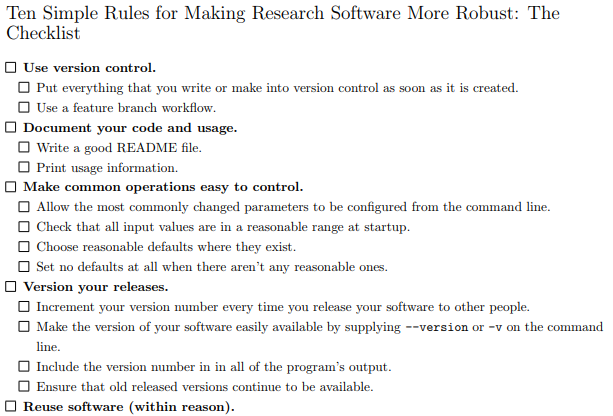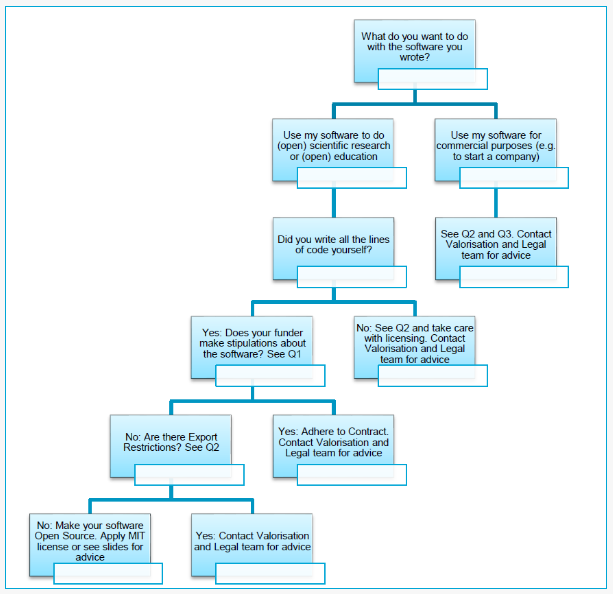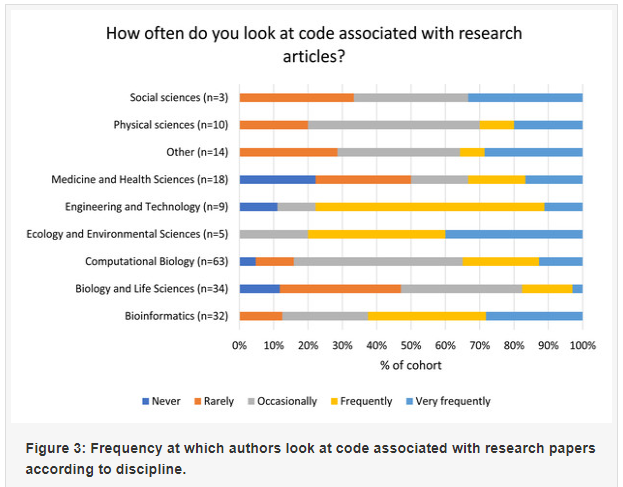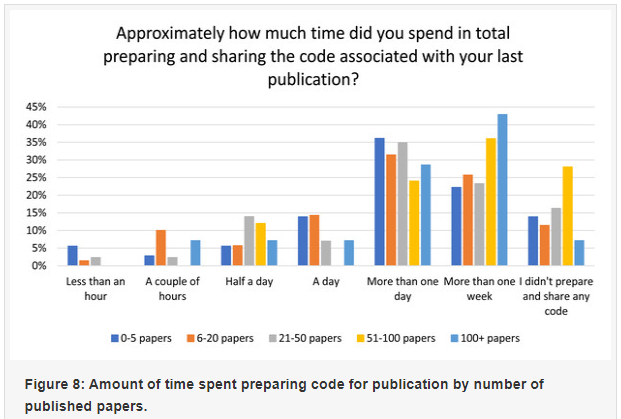Research Data Management and Publishing
Open Source Code
Practising of Open Science requires the using of open source code software for data processing, which is licenced in the way that everyone can use, edit and improve it.
It is reasonable to use the already acknowledged universal software. However, occasionally it may be necessary to write some original code for solving some certain problems.
Open source code should be treated just like any other research data or methods, it is important to pay attention to documenting the software and workflow, to metadata, to version control and licences.
In order to make research results transparent and reproducible, the accompanying software has to allow repetition of all the analyses done in the course of research.
It is advisable to use the version control system Git and the cloud-based code repositories like GitHub, GitLab (when using UT credentials choose Sign in with Sibboleth), Bitbucket etc.
It is said that software can never be completed. Therefore, it is necessary to think about whether you will be able to offer user support to your code in the future.
The article Ten simple rules for making research software more robust contains a checklist for software developers.

Useful recommendations about version control can be found in the article Ten Simple Rules for Taking Advantage of Git and GitHub
A guide has been developed at Delft University about how to licence software created for research or open education. The added diagram helps to decide how to proceed.

Choose a licence for open source code: Choose a Licence.
Some good advice from software engineer Peter Kalverla:
On selge, et ettevalmistused oma tarkvara jagamiseks ja teiste koodi mõistmine ning kasutamine ei ole lihtne.
Alljärgnevas küsitlusuuringus oli 188 vastajat ning huvitav on uurida, kui paljud tunnevad huvi teadusartikliga seotud koodi vastu ning kui ajamahukas on ettevalmistus selle avaldamiseks:
It is quite obvious that prepering the code for sharing and understanding other peoples’ code is not easy. There is a survey with 188 respondents discussing these matters from the point of view of researcher publishing an article.
Cadwallader L, Hrynaszkiewicz I. 2022. A survey of researchers’ code sharing and code reuse practices, and assessment of interactive notebook prototypes. PeerJ 10:e13933 https://doi.org/10.7717/peerj.13933


There is a booklet published in France, Open Science – Source code and software, which goes through the following topics: What legal status do source code and software have? Why and how should we make them open access? How best to structure their development and ensure permanent archiving? How should we approach promotion?


